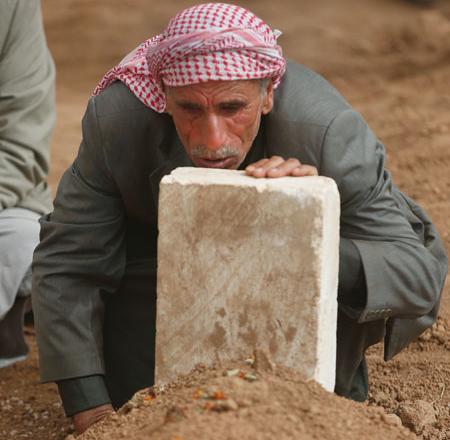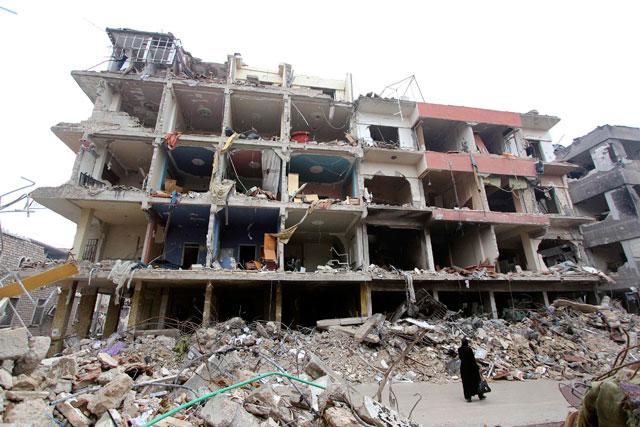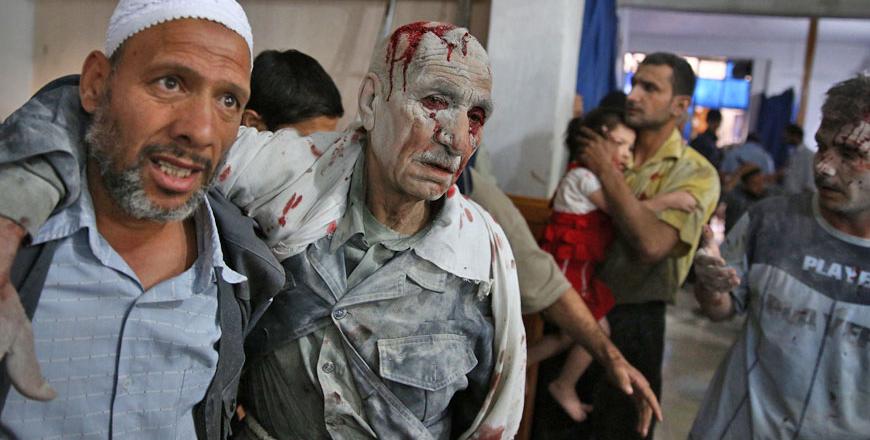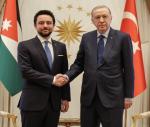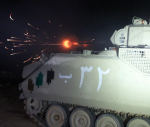You are here
Daesh losing more ground in north Syria — monitor
By Agencies - Feb 14,2015 - Last updated at Feb 14,2015
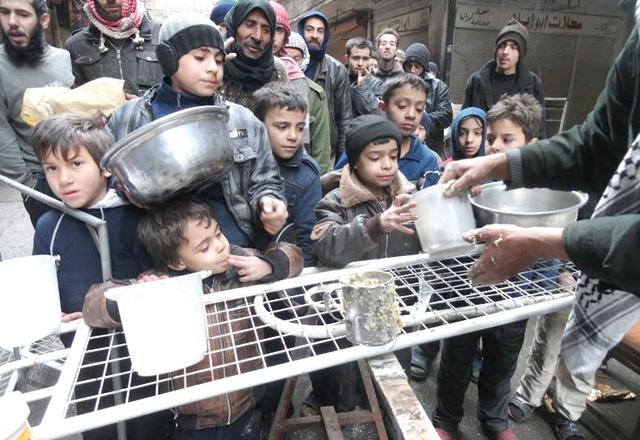
Kurdish forces backed by US-led air strikes have regained control of at least 163 villages around the Syrian town of Kobani after driving back militants from Daesh terror group in the past three weeks, a monitor of the conflict said on Saturday, Reuters reported.
The Britain-based Syrian Observatory for Human Rights said that although the Kurds had recaptured many villages since winning back Kobani in late January, their progress had been slowed by renewed clashes to the west and southwest of the town, where Daesh had redirected its fighters.
The battle for the predominately Kurdish town, known as Ayn Al Arab in Arabic, became a focal point for the US-led air campaign against Al Qaeda offshoot in Syria.
Daesh controls large areas of northern and eastern Syria, including a strip of territory across the northern Aleppo countryside and a corridor stretching southeast from Raqqa province to the frontier with Iraq.
The Syrian Kurds, who also received military support from Iraqi Kurdish peshmerga forces, said they drove Daesh from the town near the Turkish border on January 26. US-led forces have carried out almost daily air strikes on Daesh targets around the area since late last year.
The Kurds were joined by several hundred rebel fighters in the battles for areas surrounding the town, the Observatory’s founder Rami Abdulrahman said. The rebel groups included the Shams Al Shamal brigade and the Raqqa Revolutionaries Brigade, anti-Daesh fighters from northern Syria who had battled alongside the Kurds to win back territory.
Daesh’s advance on Kobani last year with heavy weapons drove tens of thousands of residents over the border into Turkey. The Kurds, armed with mainly light weapons, called for international help and the town now lies in ruins.
Assad ‘part of solution’
Meanwhile, any resolution to the fighting in Syria must involve President Bashar Assad, the United Nations envoy to Syria has said in the first such acknowledgement by the UN, Agence France-Presse reported.
“President Assad is part of the solution,” Staffan De Mistura told a joint press conference with Austrian Foreign Minister Sebastian Kurz in Vienna on Friday.
“I will continue to have very important discussions with him,” de Mistura added, noting: “The only solution is a political solution.”
This was the first time a UN envoy on Syria has explicitly named Assad as part of a peaceful solution after nearly four years of fighting between government forces and rebels seeking his overthrow.
De Mistura’s remarks drew condemnation from the key opposition National Coalition as well as from activists on the ground in Syria.
“I think De Mistura is fooling himself if he thinks that Assad is part of the solution,” coalition member Samir Nashar told AFP by telephone from Istanbul.
“Assad is the problem, not part of the solution.”
Najib Ghadbian, the National Coalition’s UN envoy, described the “brutality” of Assad’s regime as the root cause of the conflict.
He also warned the US-led alliance fighting the Daesh group — which has seized swathes of territory in both Syria and Iraq — that its efforts would fail unless world powers get serious about a peace plan for Syria.
“We welcome the coalition but we need to have a comprehensive strategy to address the underlying cause: Assad and Assad’s brutality,” said Ghadbian.
De Mistura, who was in Damascus this week to meet Assad, is due to deliver a report on his mission to the UN Security Council on February 17.
If no solution to the conflict is found, “the only one who takes advantage of it is ISIS”, de Mistura said, using another name for Daesh.
The group is a “monster waiting for this conflict to take place in order to be able to take advantage”, he said.
But Nashar disagreed, saying: “If Assad was really interested in fighting Daesh, he would have sent his troops to Raqqa rather than to Douma.”
Raqqa is the self-proclaimed capital of the jihadists in northern Syria, while Douma is a rebel bastion in the Eastern Ghouta area east of Damascus under a suffocating regime siege for more than a year.
More than 183 people have been killed in near daily bombardment of Douma over the past few weeks, according to the Syrian Observatory for Human Rights, which said 29 children were among the dead.
‘Mass killing in Douma’
“It appears De Mistura hasn’t heard about the mass killing in Douma,” said Nashar.
An activist from Douma, who identified himself as Mohammed Salaheddin, also dismissed the UN envoy’s assessment.
“Assad can only contribute to a political solution by ordering his army to stop its arbitrary shelling of civilians and by... lifting the siege on Eastern Ghouta,” he told AFP via Skype.
The activist said Assad should then “give up the position in whose name he destroyed Syria”.
In Vienna, Kurz agreed that “in the fight against Daesh it can be necessary to fight on the same side” but insisted that “Assad will never be a friend or even a partner”.
Rights groups have accused Syrian government troops of indiscriminate bombardment of civilians in rebel-held areas, including with so-called barrel bombs.
In an interview broadcast this week by the BBC, Assad denied his forces were using the crude, unguided munitions that have been blamed for the deaths of thousands of civilians.
He also complained that in the fight against Daesh, “there is no dialogue” with the US-led coalition, which began air strikes against Daesh in September.
“There’s, let’s say, information, but not dialogue,” the embattled leader said.
In a poll on Thursday, 53 per cent of residents in opposition-held areas of Syria’s second city of Aleppo — which has seen some of the country’s worst violence since July 2012 — said they favoured De Mistura’s October proposal of a “freeze” in fighting.
But a great majority also said they were sceptical that a truce would hold.
Syria’s war began in March 2011 as a peaceful movement demanding democratic change. It later morphed into a brutal civil war after Assad’s regime unleashed a crackdown on dissent.
More than 210,000 people have killed in the conflict and around half of the country’s population has been displaced.
Several rounds of talks have ended without concrete results.
Related Articles
Kurdish forces defending Kobani urged a US-led coalition to escalate air strikes on Islamic State (IS) fighters who tightened their grip on the Syrian town at the border with Turkey on Saturday.
Kurdish forces backed by Syrian insurgent groups took control of a hill inside the provincial stronghold of Daesh terror group on Sunday after deadly clashes, the Syrian Observatory for Human Rights said.
BEIRUT — Daesh militants re-entered Syria’s Tal Abyad Tuesday, seizing a district from the Kurdish forces who captured the border town in a


